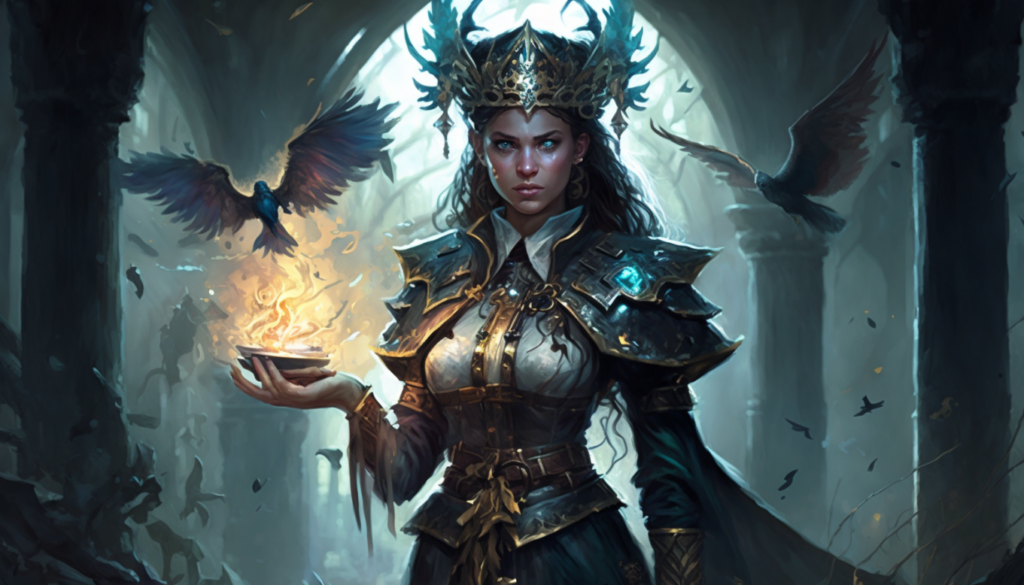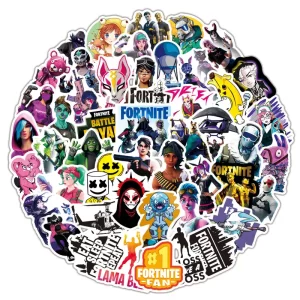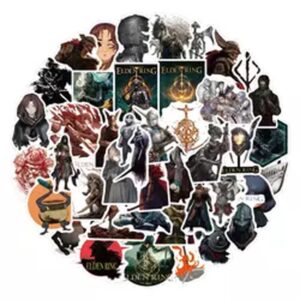As we reflect on Magic: The Gathering’s 30-year anniversary, we can’t help but ponder the game’s long-term future. While Mark Rosewater’s article, “Twenty Things That Were Going to Kill Magic,” highlighted several controversial moments in Magic’s timeline, the game has continued to thrive. However, recent changes and events have raised concerns about the game’s longevity.
We’ve witnessed Modern Horizons sets disrupt eternal formats, a card quality crisis that impacted both foils and nonfoils, and a surge of bannings due to the new FIRE design paradigm. The Companion mechanic has also caused significant upheaval in deck design, with errata being necessary after printing. Furthermore, Unset cards have entered Commander and Legacy, and Disney’s Lorcana looms as a potential challenger to Magic.
While Magic has previously skirted the edge of disaster, game makers must remain cautious to ensure its survival. Therefore, in this two-part series, we’ll examine how the game could come to an end and what the aftermath would look like.

We’ll define the “death” of Magic as Wizards of the Coast ceasing the production of new paper and digital cards. We’ll explore the various possibilities that could lead to this outcome and discuss how each could impact the game’s players and community.
Before we Begin
There is widespread fear that altering the Reserved List regulation will devastate the stability of the card economy. Card shops and collectors could leave in droves if they discovered their stock of cards had abruptly lost value.
When Chronicles was first released in 1995, this was a major worry, which prompted the Reserved List. Even if there have been minor regulation shifts over the years, such as the introduction of gold border reprints, it’s doubtful that Black Lotus will ever be legal for tournament play again. The owners of Magic: The Gathering, Hasbro, are hardly likely to gamble heavily with their most successful product.
Business Missteps
A potential scenario that could lead to the end of Magic: The Gathering is business missteps. In my mind, this is the most likely scenario. As highlighted in a recent article, analysts are already calling out Hasbro for their over-monetizing the Magic the Gathering IP. This is in addition to the OGL snafu we witnessed with the D&D community. In that article we highlighted Bank of America’s analyst report:
Hasbro’s over-monetization of the brands within its Wizards segment, which includes Magic: The Gathering and Dungeons & Dragons, has been a major point of concern for Bank of America. The company is attempting to maximize its short-term profits without considering the long-term health of its brands. This approach is irking customers, who are becoming increasingly frustrated with Hasbro’s tactics.
Some fans fear that Universes Beyond, which includes crossovers with other intellectual properties like The Walking Dead, Warhammer, and Lord of the Rings, could dilute the game’s visual identity. Business missteps can also include factors like the price of products, frequency of reprints, support for paper play, and the print quality of cards themselves. All of these factors play into the success of Magic and can contribute to its downfall if ignored for too long.

This scenario remains the most likely scenario leading to the end of Magic. Serious missteps by Wizards of the Coast or Hasbro could compromise the hard work that has led up to this point. While problematic cards can get banned, bad business decisions can bring everything down at once.
However, it is worth noting that Wizards of the Coast and Hasbro are committed to making Magic enjoyable for years to come. The game is fun and profitable, and enough passionate people are designing Magic cards to keep the game from becoming boring. Still, their efforts can be sabotaged from within.
For instance, when developing Modern Horizons, playtesting was mostly carried out by a group of four people. If Wizards of the Coast is starved of its most valuable asset, its people, the game will suffer. It’s hard to imagine that a billion-dollar company like Hasbro would starve Wizards of resources, but corporate realities have shown that powerful people in a room who agree with each other can lead to a lot of changes.
Power and Complexity Creep
Power/Complexity Creep is another scenario that could spell the death of Magic: The Gathering. The term “Power Creep” describes the trend of increasingly potent new card designs. Keeping the game interesting is crucial, but it’s important not to overdo it. Overpowering cards can cause game instability and drive away diehard fans.
Complexity Creep describes the trend of adding more text and game interactions to Magic cards. Players may be dissuaded from using a card if they have trouble deciphering its mechanics. It took me several reads to completely grasp, for instance, the deans’ talents in Strixhaven. In addition, cards like Crystalline Giant and the Night and Day mechanic in Innistrad that are difficult to keep track of in paper contexts might cause confusion during play.
The introduction of the FIRE design principles has led to an increase in the power and complexity of Magic sets in recent years. If Wizards of the Coast continues to increase the power level of each set, it could spiral out of control. Players may feel compelled to play the most recent cards or resign themselves to a frozen format like Premodern or Old School.
While this scenario is not likely to bring about the end of Magic, it must be managed properly. The power creep in Magic has slowed compared to previous years. It is important to use community feedback and tournament data to moderate power level creep. However, these changes take time to implement, and players must adjust their expectations to achieve a new sense of normalcy in the game.
Digitization
Finally, one more potential scenario that could lead to the end of Magic: The Gathering is forced digitization. Magic has always been an in-person game, with players interacting face-to-face, shuffling cards, and admiring their shiny appearance. However, if there was a heavy push to digitize the game, with the intention of phasing out paper play, it could harm Magic as we know it. While going digital-only may not kill the game outright, it could make Magic indistinguishable from any other online game.
Magic Arena offers monetization opportunities that are not achievable with selling paper cards. Additionally, the production of paper products is a significant overhead cost for Wizards of the Coast. Therefore, eliminating paper play would raise the profitability of the game overall. From a business perspective, this is tempting.
However, it is a massive risk for the game’s future. Currently, the most popular way to play Magic is in-person, with friends gathered around the table. The recent success of Commander, a format designed for multiplayer in-person play, is arguably the strongest thing preventing Magic from becoming a purely digital game. While digitization may not completely kill Magic, it could be enough to turn many players away from the game.
Final Thoughts
Magic: The Gathering has had a rough 30 years. Nonetheless, despite this, it has expanded and flourished. While issues like card supply, power creep, and competition are always pressing, the game’s commercial practices are most likely to spell its demise. The possibilities of this happening are limited at present, but they are never zero.
We as gaming fans must keep an eye on the business end of things and maintain vigilance. We need to speak up when something doesn’t seem right or when we think a choice will hurt the game. Remember, though, that Wizards of the Coast and Hasbro have vowed to keep Magic entertaining for years to come. If given proper direction, the game has the potential to flourish and bring delight to players all around the world.
As we move forward, we should celebrate the success of Magic and look forward to the new experiences it will provide. We also need to monitor the threats that may arise and collaborate to overcome them so that the game can thrive for years to come.













